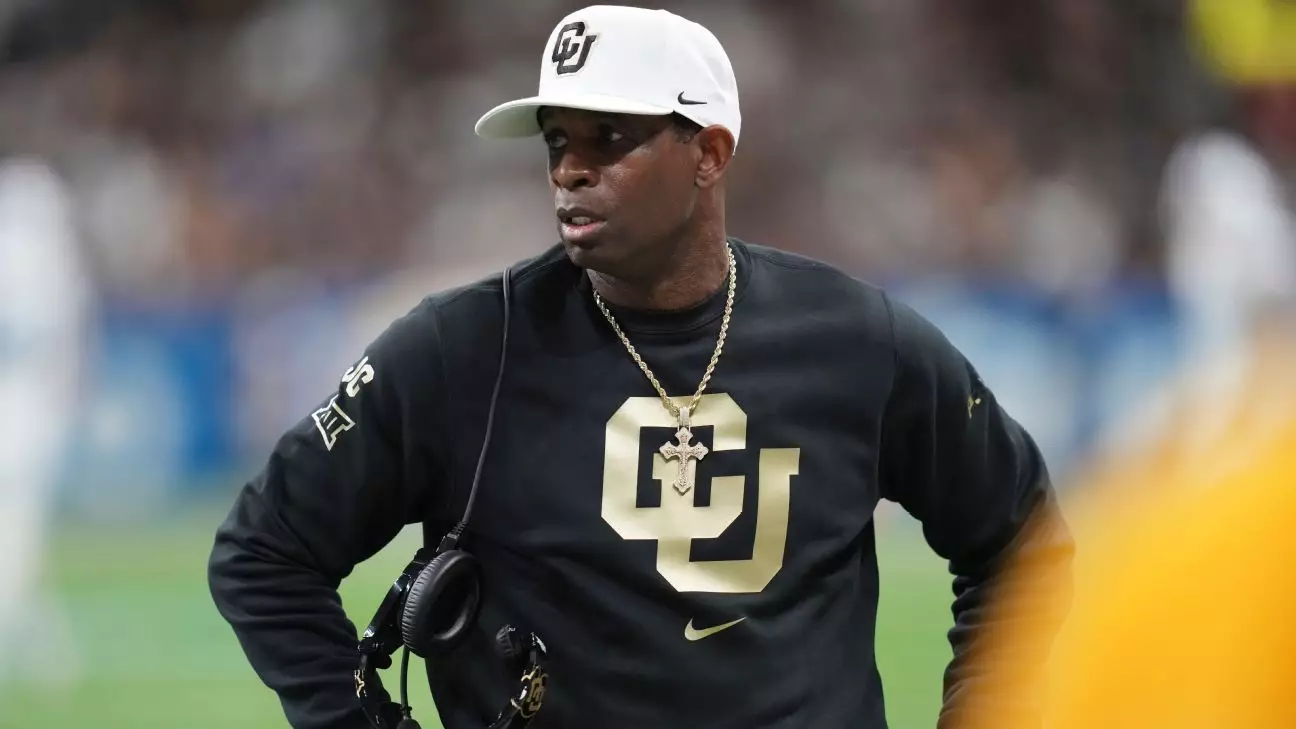The world of professional football is as terrifyingly intense and competitive as it ever was, and Deion Sanders, a legendary figure in the sport, is acutely aware of this reality. Recently, after the Dallas Cowboys expressed interest in him for their head coaching vacancy, Sanders chose to remain at the University of Colorado. His reasoning reveals not only his personal philosophy but also highlights the drastic differences in the landscape of professional football today compared to his heyday.
The “Prime Time” Dilemma
Sanders’ decision is indicative of the intricate relationship he maintains with football both as a coach and a former player. On his television talk show, “We Got Time Today,” he discussed the transition he perceives between the NFL of the 1990s—when he played alongside the likes of Troy Aikman and Michael Irvin—and the current state of the game. For Sanders, the thrill of coaching at a professional level seems daunting rather than enticing. When he stated, “I couldn’t coach pro ball,” he underscored the unique pressures and expectations placed on modern-day coaches that he finds disconcerting.
The rigorous nature of training camps and game preparation has evolved, inflating the demands placed on coaching staff. Sanders’ reluctance to immerse himself in this highly charged environment shows an underlying respect for the game. He indicated a fierce commitment to maintaining the integrity and traditional values that he believes the sport deserves. “As a man, and as a football enthusiast, and I care about the game,” he asserted, indicating that there are principles he wishes to uphold—even if it means stepping away from opportunities at the professional level.
Deion Sanders has been at the helm of the Colorado Buffaloes for two seasons, boasting a record of 13-12. Despite the ups and downs, one cannot overlook the positive strides he has made with the program, especially when they finished 9-4 last season. Importantly, the recognition of player talent has thrived under his leadership, exemplified by the remarkable ascent of Travis Hunter—who received the highly coveted Heisman Trophy. Here, Sanders finds an environment that allows him the freedom to instill his philosophies while simultaneously nurturing young athletes.
Remaining at Colorado may indicate that Sanders values the development of character in younger players over the instant gratification of win-loss records that characterizes the NFL. It’s a realm where he feels he can genuinely impact lives. While he reflects nostalgia on his days with the Cowboys, his focus seems to be on fostering the next generation rather than re-entering the fray of ultra-competitive pro football.
As the Cowboys opted for Brian Schottenheimer—an in-house promotion—to fill their head coach vacancy, the sentiments expressed by Aikman reveal significant respect for Sanders within former teammate circles. Aikman’s remarks about how Sanders would have commanded the locker room highlight the leadership and charisma that he brought during his playing days. There is a pervasive acknowledgment among Aikman and others that Sanders is not merely a nostalgic remnant of the past but a figure that could reinvigorate organization culture if given the chance.
However, frustration brews among those who view the Cowboys’ decision as a missed opportunity, especially given Sanders’ legend status within the franchise. Aikman himself observed that even fans of the Cowboys, like Michael Irvin, are split on the board’s decision to scroll past Sanders. They recognize an inherent value that he could bring to the team—a firm yet charismatic leadership style that resonates well in a high-pressure football environment.
Ultimately, Deion Sanders’ journey illustrates the complex dynamics of modern football coaching, juxtaposing the values of mentorship and integrity with the fierce competitiveness of the NFL. While professional opportunities beckon, his choice to cultivate young talent at Colorado may echo a profound understanding that the sport is as much about personal growth as it is about winning titles. With his heart firmly rooted in football, Sanders remains an emblematic figure who navigates the fine line between legacy and future aspirations. In a world changing at a rapid pace, his wisdom and approach offer a unique perspective on what coaching truly means—not just in terms of victories but through the lives impacted along the way.

